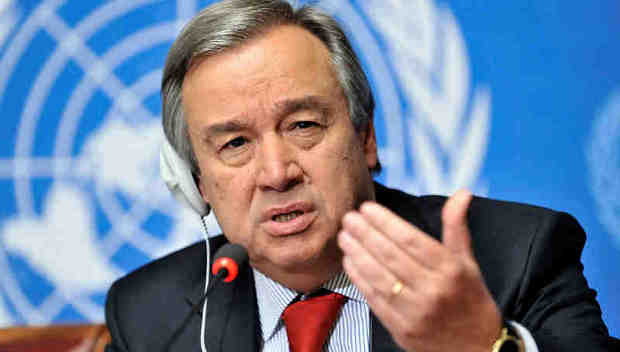UN Launches New Global Disaster Data Collection Tool

United Nations Secretary-General António Guterres. UN Photo/Jean-Marc Ferré (file)
The United Nations Office for Disaster Risk Reduction (UNISDR) kick-offed on Thursday a new effort to collect comprehensive global data on disaster losses.
“It is impossible to prevent disasters and to manage risk if a country is not measuring its disaster losses, particularly at the local level, for both small-scale and large-scale events,” said the Secretary-General’s newly appointed Special Representative of the for Disaster Risk Reduction, Mami Mizutori.
“Such losses are a great setback for efforts to eradicate poverty,” she added.
The Sendai Framework for Disaster Risk Reduction – the first major agreement of the post-2015 development agenda – launched its online tool: The Sendai Framework Monitor.
[ UN Opens Centre for Humanitarian Data in the Netherlands ]
This tool captures data on the achievement of the Framework’s five targets of reducing mortality from disasters; the numbers of disaster affected people; economic losses; and reducing damage to critical infrastructure; along with recording the number of countries with national and local strategies for disaster risk reduction.
“The Sendai Framework Monitor will provide inputs to the first report on achieving progress on implementing the Sustainable Development Goals [SDGs] in July,” Ms. Mizutori said in a statement marking the launch.
In a world where climate change and extreme weather events contribute to pushing 26 million people into poverty every year, she underscored “improving how we manage risk is vital and this requires a deeper understanding of where these losses are occurring and not just for major internationally recorded events.”
“The silent, small-recurring events, such as floods and droughts can take a huge toll on communities which lack essential health services and other coping capacities,” she concluded.














